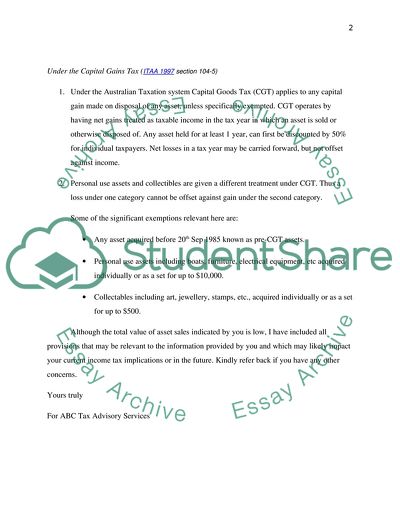Cite this document
(Taxation Law Assignment Example | Topics and Well Written Essays - 1750 words, n.d.)
Taxation Law Assignment Example | Topics and Well Written Essays - 1750 words. https://studentshare.org/law/1744055-taxation-law-according-to-itaa-1997-and-itaa-1936
Taxation Law Assignment Example | Topics and Well Written Essays - 1750 words. https://studentshare.org/law/1744055-taxation-law-according-to-itaa-1997-and-itaa-1936
(Taxation Law Assignment Example | Topics and Well Written Essays - 1750 Words)
Taxation Law Assignment Example | Topics and Well Written Essays - 1750 Words. https://studentshare.org/law/1744055-taxation-law-according-to-itaa-1997-and-itaa-1936.
Taxation Law Assignment Example | Topics and Well Written Essays - 1750 Words. https://studentshare.org/law/1744055-taxation-law-according-to-itaa-1997-and-itaa-1936.
“Taxation Law Assignment Example | Topics and Well Written Essays - 1750 Words”. https://studentshare.org/law/1744055-taxation-law-according-to-itaa-1997-and-itaa-1936.


